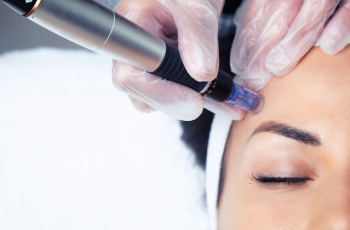
Your Comprehensive Guide to Vegan Skin Care
In recent years, the interest in vegan skin care has grown rapidly as more people become aware of clean living, animal welfare, and environmental sustainability.
Vegan skin care products, which contain no animal-derived ingredients or by-products, offer a way to embrace ethical choices while caring for your skin.
Whether motivated by compassion for animals, desire for more plant-based ingredients, or curiosity about cleaner formulations, many are making the switch to vegan skin care.
But navigating the world of vegan skin care can be tricky. Unlike organic or cruelty-free labels, there are currently no standardized federal regulations defining what exactly constitutes a “vegan” product.
This means some products may claim to be vegan without fully meeting the criteria.
Understanding what vegan skin care really means, what ingredients to look for (and avoid), and how to select products that match your skin type is essential to making informed, effective choices.
This guide will break down everything you need to know about vegan skin care, from definitions and ingredient explanations to benefits, drawbacks, and tips for choosing the right products for your unique skin.
What Exactly Is Vegan Skin Care?
At its core, vegan skin care refers to products that do not contain any ingredients derived from animals or their by-products.
This excludes not only obvious animal ingredients like honey or milk but also less obvious ones like lanolin (from sheep’s wool), collagen (usually from animal connective tissue), beeswax, gelatin,
and carmine (a red pigment made from crushed beetles).
Instead, vegan skin care relies on plant-based ingredients, minerals, and synthetics designed to provide similar skincare benefits without exploiting animals. For example:
Plant-based collagen boosters:
Since collagen is vital for skin elasticity but traditionally sourced from animals, vegan products often use soy protein, vitamin C, or algae extracts to stimulate your body’s collagen production naturally.
Plant-derived hyaluronic acid: Often produced through fermentation of plant sugars, this moisture-binding molecule is vegan-friendly and essential for hydrating skin.
Natural oils and butters: Jojoba, argan, shea butter, and other plant oils provide nourishing hydration and barrier protection without animal products.
Understanding the Lack of Regulation
Unlike certifications such as USDA Organic or the Leaping Bunny cruelty-free label, there is no federally regulated standard for labeling skin care products as “vegan.” This lack of regulation means:
Labels can be misleading: A product might be labeled “vegan” without fully excluding all animal-derived ingredients.
“Natural” or “organic” does not mean vegan: Many natural or organic products can still contain animal by-products like beeswax or lanolin.
Verification is key: Look for trusted third-party vegan certifications like The Vegan Society or PETA’s Cruelty-Free and Vegan logo.
The best way to ensure a product is truly vegan is to read the ingredient list carefully. If you’re unsure about an ingredient’s origin, researching or contacting the brand directly can provide clarity.
Common Vegan Skin Care Ingredients and Their Benefits
Vegan skin care products rely on a variety of plant-based, mineral, and synthetic ingredients designed to benefit the skin without animal exploitation.
Here are some common ingredients and their functions:
Aloe Vera: A versatile plant extract known for soothing, hydrating, and calming irritated or inflamed skin. Aloe vera gels and moisturizers are staples in vegan skin care.
Hyaluronic Acid: A powerful humectant that attracts and retains moisture in the skin.
Typically produced via microbial fermentation of plant sugars, vegan hyaluronic acid is excellent for hydration without heaviness.
Plant Oils and Butters:
These include jojoba oil (which closely resembles skin’s natural sebum), argan oil (rich in antioxidants and fatty acids), shea butter (an emollient for softening skin), and others.
While they hydrate and nourish, some oils like coconut oil may clog pores in oily or acne-prone skin, so selection depends on your skin type.
Vitamins and Antioxidants:
Ingredients like vitamin C (brightening and collagen-boosting), vitamin E (antioxidant and skin barrier support), green tea extract (anti-inflammatory and antioxidant),
and others protect against environmental damage and support skin health.
Fruit Enzymes: Pineapple and papaya enzymes are gentle exfoliants that remove dead skin cells, revealing brighter, smoother skin without harsh scrubbing.
Plant-Based Emollients and Humectants: Vegetable glycerin, plant-derived squalane, and sugar-derived ingredients help maintain moisture and skin softness.
Tricky Ingredients to Watch Out For in Vegan Skin Care
Not all ingredients are obviously animal-derived, and some sneak into products without clear labeling. Here are some animal-based ingredients to avoid if you want 100% vegan skin care:
Tallow: Rendered fat from cows or sheep, used in soaps and balms for moisturizing. Vegan alternatives use plant oils or vegetable glycerin.
Carmine: A red pigment from crushed cochineal beetles, common in lipsticks and blushes. Vegan products substitute synthetic or plant-based colorants like beetroot powder.
Collagen: Usually derived from animal bones and connective tissue, collagen is common in anti-aging products.
Vegan alternatives focus on boosting your body’s collagen through ingredients like vitamin C or algae extracts.
Lanolin: Extracted from sheep’s wool, lanolin acts as an emollient in moisturizers and lip balms. Vegan substitutes include plant oils such as olive oil or shea butter.
Retinol and Vegan Skin Care
Retinol, a vitamin A derivative celebrated for its anti-aging benefits, can come from both plant and animal sources. However, most skin care retinol is synthetic and therefore vegan.
A popular plant-based alternative gaining traction is bakuchiol, extracted from the babchi plant.
It mimics retinol’s effects by improving skin texture and reducing wrinkles with less irritation, making it an excellent vegan-friendly option.
Benefits of Choosing Vegan Skin Care
Switching to vegan skin care can provide numerous benefits for your skin, your conscience, and the planet:
High in Vitamins and Antioxidants: Many vegan products are rich in skin-supporting vitamins, antioxidants, and phytonutrients that protect against environmental damage.
Gentle and Suitable for Sensitive Skin: Vegan formulas often exclude harsh chemicals, synthetic fragrances, and potential allergens, making them suitable for sensitive or reactive skin.
Environmentally Friendly: Vegan products are often made with sustainable sourcing and biodegradable ingredients. Eco-friendly packaging choices reduce waste and pollution.
Cruelty-Free Assurance: Vegan skin care ensures no animals were harmed or exploited during production, aligning with ethical beauty principles.
Potential Drawbacks of Vegan Skin Care
While vegan skin care is an ethical and appealing choice, consider these potential limitations:
Higher Price Points: Premium plant-based ingredients can make vegan products more expensive than conventional options.
Limited Availability: Although growing rapidly, some specialized products may not have vegan alternatives widely available, especially in local drugstores.
Variable Effectiveness: Not all plant-based substitutes perform identically to their animal-derived counterparts, meaning results may vary.
Suitability for Skin Types: Vegan doesn’t guarantee a product is right for your skin. For example, coconut oil in vegan formulas can clog pores on oily or acne-prone skin.
How to Choose Vegan Skin Care for Your Skin Type
Choosing vegan products that align with your skin type is critical for success. Here are some tips:
Dry Skin: Look for hydrating oils like argan and moisturizing humectants such as hyaluronic acid. Avoid ingredients that excessively strip natural oils.
Oily or Acne-Prone Skin: Opt for lightweight oils like jojoba and avoid heavy or comedogenic oils like coconut. Include anti-inflammatory and antibacterial plant extracts.
Sensitive Skin: Select fragrance-free vegan formulas rich in soothing ingredients like aloe vera and green tea.
Aging Skin: Use vegan products with antioxidants (vitamin C, E), collagen boosters, and gentle exfoliants like fruit enzymes or bakuchiol.
Transitioning to Vegan Skin Care: Tips for Success
Patch Test New Products: Always test new vegan products on a small skin area to check for sensitivity.
Check Ingredient Lists: Verify no animal-derived ingredients or common allergens are present.
Introduce Slowly: Gradually swap your routine to avoid overwhelming your skin.
Combine with Your Skin Type Needs: Vegan products are not one-size-fits-all. Balance vegan ethics with personalized skin care needs.
Final Thoughts: Is Vegan Skin Care Worth It?
Vegan skin care offers a compelling blend of ethics, environmental responsibility, and skin health benefits.
With an expanding market and more reliable certifications, it’s easier than ever to find effective, genuinely vegan products.
However, “vegan” does not automatically mean “better” or “perfect” for your skin. Careful ingredient selection and attention to your unique skin type remain essential.
If you’re curious about trying vegan skin care, start by exploring brands with transparent ingredient lists and trusted certifications.
Consult with a dermatologist or take a skin type quiz to find personalized product recommendations that align with your values and skin goals.


